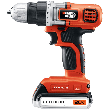Painting windows is a rather unique painting project when you stop and think about it. The reason for this is that unlike painting walls, when you are painting windows you are only painting a portion of the windows. In fact, it takes some rather delicate work and a little preparation to ensure you don't actually paint the glass portion of your windows. Just follow these directions to ensure you do the job the right way the first time, every time.
Materials Needed
- Drop cloths
- Painter's tape
- Paint scraper
- Utility knife
- Replacement blades
- Vibrating or rotary sanders
- 100 grit sand paper
- Caulking
- Caulking gun
- Putty knives
- Screwdrivers
- Rags
- Paint brushes
- Ladder
- Primer
- Paint
Procedure
- Gather materials. The first step to painting windows is to gather all the materials you will need. The list above includes the most commonly used items for this particular painting project. When you are gathering the paint that you will be using, make sure that you choose a paint color and shade that is complimentary to the surrounding house colors.
- Inspect the windows. Once you have your materials ready to go, it is time to actually inspect the windows and the frames that they are in. When you are inspecting the windows you will want to look both inside and out to ensure that they are in good working condition, and if not make any necessary repairs. This is the reason for the caulking and other window repair materials on the materials list.
- Prepare your workspace. When your windows are in good working order, you can begin preparing your workspace. This is done by placing some drop cloths down on the ground to help protect your floor from any spills or accidents. Additionally, you may want to have some newspapers attached under the window sill using some painter's tape to help protect the wall from any potential drips or accidents. Do not forget to cover up the glass on your windows using newspaper and painters tape to ensure you don't get any paint on the glass itself, as well as the hardware (such as locks and handles) as well.
- Remove old paint. With your workspace now properly prepared, you can begin removing the old paint. Use your paint scrapers, razor blades, and sanders to remove the old paint. Use the scrapers and razor blades remove the old flaky paint, being careful to not dig into the wood itself. When you have removed as much of the flaky paint as you can, it is time to bring your sander out to play. When you have finished removing your old paint, take a damp cloth and wipe the window and frame down. This will help remove any remaining dust, dirt, grime, or wood and paint particulates that may remain.
- Prime. Begin applying your primer to the now prepared wood of your windows. When applying the primer, start at the top of your window and work your way downward. Additionally, you will want to take your time while you do this to ensure that you don't miss anything. Once you have applied the primer, allow it to dry completely before progressing. When the primer has completely dried take a moment to inspect your work and ensure that you did not miss anything. If you did miss anything apply some primer to that particular area.
- Paint. With the primer on your windows completely dried, you can now begin applying the paint to that area. Apply this colored paint in the same manner that you did with the primer. Make sure that you allow enough time for the paint to completely dry before you begin applying any second coats. This will give you enough time to inspect the windows for any areas that you may have missed with your first coat. Repeat the process of painting, waiting, and inspecting until you have the exact color you want.
Once you have the windows exactly where you want them, you can begin cleaning up. This means that you will need to remove all the tape and newspaper that you may have on the windows, as well as cleaning the tools you used. Take your time to clean those tools, otherwise you will find yourself needing to purchase new ones the next time you need to do some painting. Good painting tools are an investment, and should be treated as such.
Author Bio
Lee Wyatt
Contributor of numerous Tips.Net articles, Lee Wyatt is quickly becoming a regular "Jack of all trades." He is currently an independent contractor specializing in writing and editing. Contact him today for all of your writing and editing needs! Click here to contact. Learn more about Lee...
Troubleshooting Water Heaters
If you have a water heater, then chances are you know what it is like to have it go on the fritz after a while. Learning ...
Discover More
Can Push Pins Help When Hanging Wallpaper?
If you have ever experienced the "pleasure" of hanging wall paper, then chances are you have asked yourself the question: ...
Discover More
Removing Gel Ink Stains
Over the past few years gel ink pens have become an ever increasingly popular item around the country. Unfortunately, as ...
Discover More
More Home Improvement Tips
Properly Using a Paint Tray
Whenever you begin any painting project there are a whole bunch of tools you can use. One of the more common that you can ...
Discover More
Painting Vinyl Siding
Vinyl siding is a popular choice among many home owners due to the durability, and ease of maintenance that it shows. ...
Discover More
Repainting Latex on Oil Paint
For the most part it is a good idea to remove any remnants of oil paint before you begin painting latex paint in the same ...
Discover More

Comments